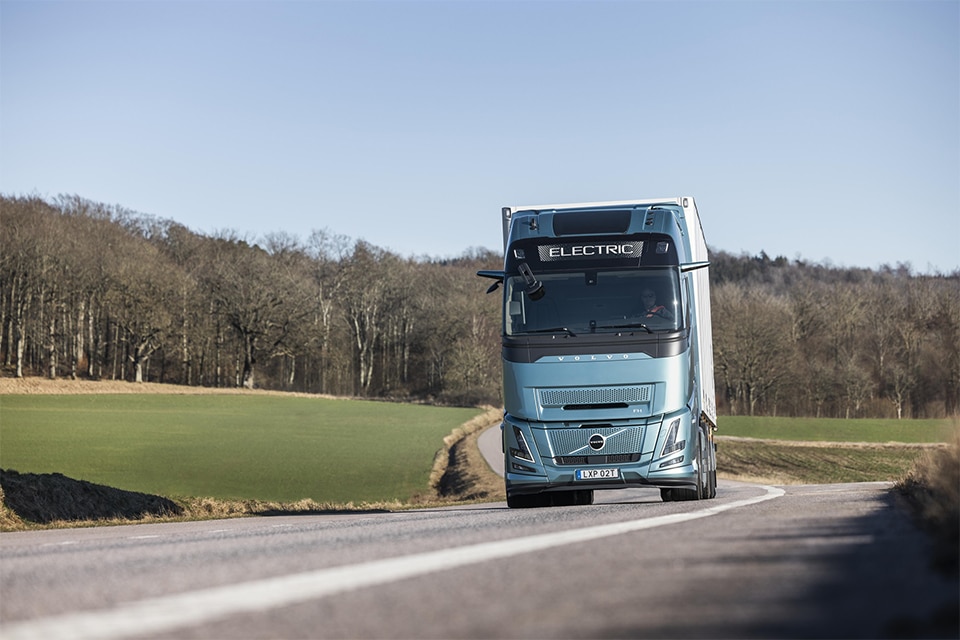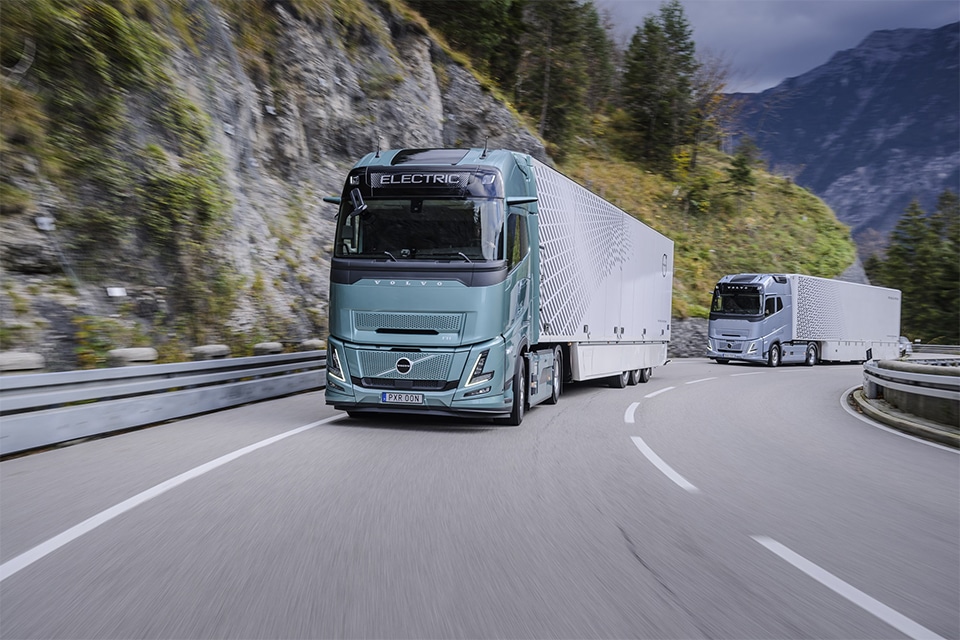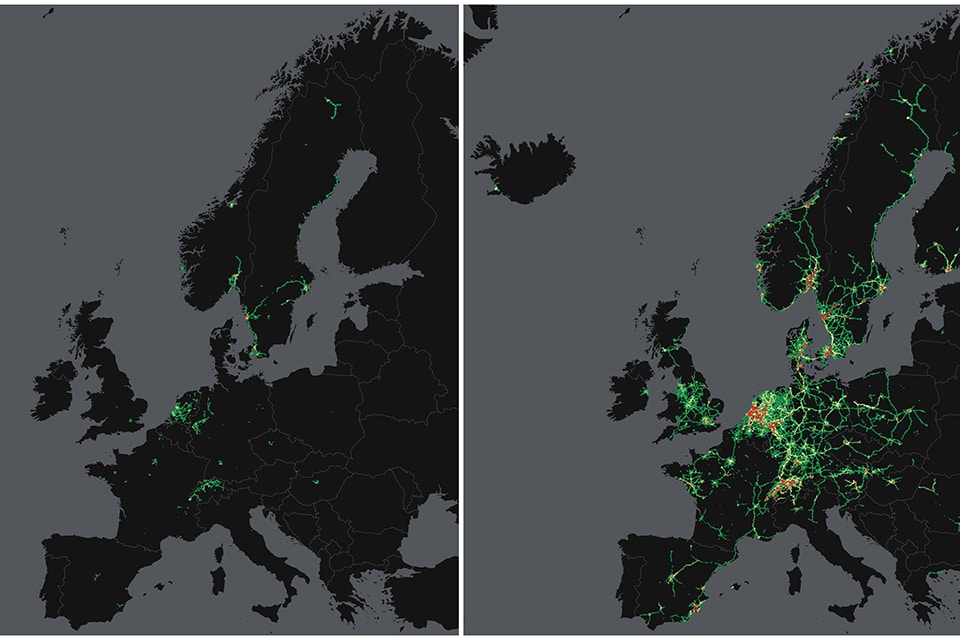
Volvo Trucks fifth consecutive year to lead electric truck market in Europe and North America
For the fifth year in a row, Volvo Trucks is the market leader in electric trucks weighing 16 tons and heavier, with a segment share of 47% in Europe. Volvo also holds a leading position in this heavy-duty electric truck segment in North America.
Volvo Trucks is the market leader in the heavy electric truck segment (GVW of 16 tons and above) in Europe for the fifth year in a row. There were 1,970 Volvo electric trucks registered in Europe in 2024, resulting in a segment share of 47%. The top five markets for Volvo's electric trucks in 2024 were the Netherlands, Germany, Sweden, Norway and Switzerland. Volvo Trucks also holds a leading position in North America, with over 40% market share within this segment in 2024.

"We are proud to lead the transition to zero-emission transportation. We have a very strong portfolio of electric trucks for regional, urban and construction transport. Our next electric truck on the market will be able to drive longer distances of up to 600 kilometers on a single charge," said Roger Alm, president, Volvo Trucks.
"All transportation companies, large and small, who are leading the way and investing in electric trucks I want to thank," said Roger Alm. "I am so proud that you choose Volvo as a partner on the road to zero emissions! Thanks also to our dealers, suppliers and colleagues within the Volvo Group."
Volvo Trucks, which began series production of electric trucks in 2019, now has eight electric truck models in its product lineup and has delivered a total of more than 4,800 electric trucks to customers worldwide.
"The growth of electric-powered Volvo trucks is going fast. Our total fleet has now driven more than 140 million kilometers with customers around the world. More and more electric trucks are on the road, operating in new geographical areas and reducing CO2-emissions for our customers. That's great to see," Roger Alm says.

More than electric trucks needed to accelerate energy transition
By 2024, electric trucks represented only 1.3% of the total truck market in Europe. That's a good start, but more is needed to accelerate the energy transition.
Wider acceptance of electric trucks depends on several factors, such as expansion of public charging infrastructure including grid capacity, more favorable total cost of ownership (TCO) for transportation companies, public procurement of transportation without exhaust emissions, and a sustainable supply chain.
"To accelerate the shift to emission-free transport, having electric trucks is insufficient. According to our analysis, we need 40,000 fast chargers along European roads to power a potential total of 400,000 electric trucks by 2030. Also needed are more efficient economic policies that make electric truck ownership profitable for all transport companies," said Roger Alm.

"We are in close contact with all stakeholders because it is very clear that much more needs to be done - and with a greater sense of urgency - to ensure that the transition now accelerates."
'Europe' refers to the European Union including the United Kingdom, Norway and Switzerland (EU30) and 'North America' refers to the US and Canada.



